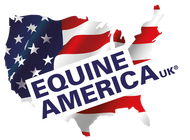Winter Tips Series - Routine Changing

Over winter many people find their turnout reduces and stabling increases, this might be because your field is flooded or turned to mud, or it might simply be because the nights are longer meaning your horse comes in earlier. One of the problems this can cause is colic.
Vets tend to see a rise of impaction colic cases at this time of year. A combination of routine change, increased stabling and reduced water intake tends to be the cause. Switching from grass to dry, preserved forage (for example hay) will naturally reduce their water intake, but also many horses do not like drinking ice cold water! This combination of reduced exercise and reduced water intake will slow the movement of food through the gut; meaning more water is reabsorbed from the digestive contents and leads to an impaction colic.
What are the signs of colic?
- Restless or agitated – repeatedly rolling, attempting to lie down, sweating and pacing.
- Off food or reduced appetite
- Reduced or absent droppings or change in faecal consistency
- Abdominal pain – flank watching, kicking at belly, pawing
- Tired or lethargic
These symptoms can vary widely between horses but if you are concerned your horse has colic you should contact your Vet immediately. Early detection and prompt Veterinary treatment will increase the chance of recovery for your horse.
It is worth putting a care plan in place for your horse just in case you have an emergency. Have you put a care and emergency plan in place? The BHS have a nice template to get you started:
What can you do to reduce the risk of colic?
- Monitor your horse closely for signs of colic.
- Monitor how much your horse is drinking and urinating.
- Ensure a constant supply of clean fresh drinking water. In the cold weather ensure their water supply is not frozen and try to take the chill off it to encourage drinking.
- Try to increase their water intake – you can add water to their feed, or hay. You can offer an extra bucket of water (in addition to clean fresh water) with some extra apples, grated carrot or apple juice.
- Monitor their faeces – check the consistency and frequency. Small hard nuggets and reduced number can be an indication of a problem.
- Introduce any changes to their routine and diet gradually where possible, ideally over 10-14 days.
- Regular exercise – this doesn’t need to be ridden; handwalking or handgrazing can be beneficial and keep things moving.
- If your grazing is very sparse you may need to consider supplementing forage whilst turned out. This is to reduce the risk of your horse foraging and eating poisonous plants (such as acorns) or too much sand (for those of you on sandy ground). Consult your nutritionist or Vet for advice if you have an overweight horse or pony.
- Electrolytes aren’t just for summer! If your horse is working hard over winter and sweating, or sweating because they are unclipped, you may need to supplement with electrolytes.
- Act early if you are worried about your horse by calling your Vet for advice. Make sure you have a care and emergency plan in place, so that all looking after your horse know what to do in an emergency.
Our knowledgeable and friendly team at Equine America are here to help, please feel free to get in contact!
 Skip to content
Skip to content

